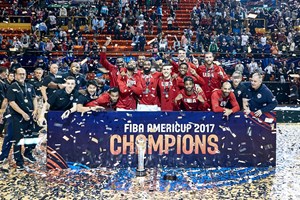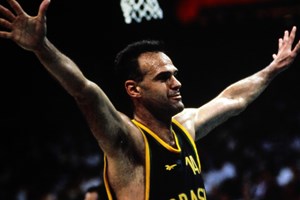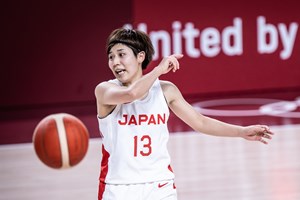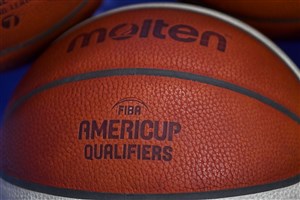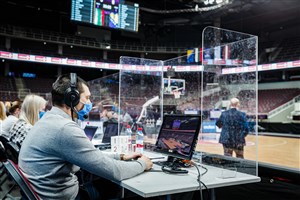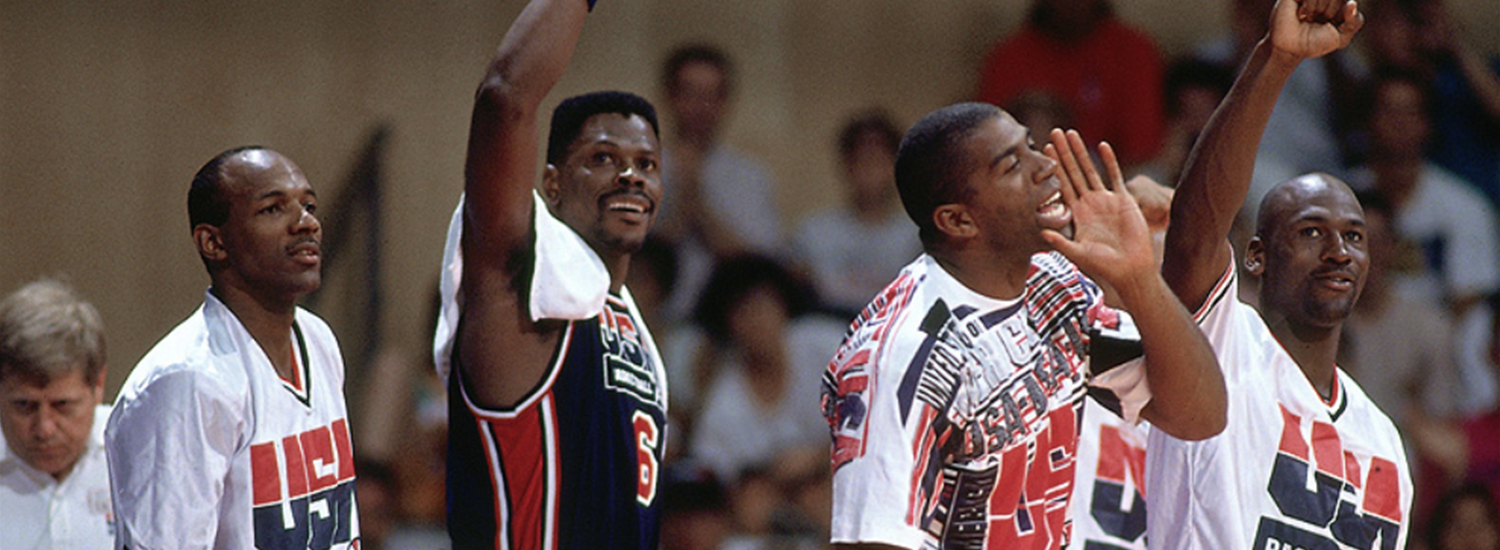
What was the best FIBA AmeriCup team in its 40-year history?
The second invitation to come to the roundtable and virtually debate presents a subject that has inevitably brought us to an absolute agreement. To choose what’s the best team in the history of the most important national team championship in the Americas, it's not necessary to take much time to reflect.
This time around, we asked Puerto Rican coach and TV analyst Carlos Morales to provide an answer: “Without a doubt, the original Dream Team that the United States presented and debuted in Portland 1992, a few weeks before they took over the competition in the Olympic Games in Barcelona. With icons like Michael Jordan, Larry Bird, and Magic Johnson, it's very tough on any other national team to dispute that title.”
It's clear that the constellation of superstars led by Chuck Daly wasn't only the best continental representation, but the world’s. No one has even come close to the supremacy portrayed by that team. Eleven NBA legends and Christian Laettner of Duke University. They were Michael Jordan, Magic Johnson, Larry Bird, Scottie Pippen, Charles Barkley, Patrick Ewing, David Robinson, Karl Malone, John Stockton, Clyde Drexler, and Chris Mullin. Their rivals took pictures with them before the match to treasure the experience forever. Everyone knew that there was nothing like the United States national team.
So, it’s all right if we amplify our debate and offer another option to the prestigious journalists so that they can choose another team. The Olympic NBA gods are left aside, and more earthly national teams started to appear.
The argentine narrator and historian Alejandro Pérez considers that "the answer can't be another than the 1992 United States national team, simply because there'll never be another team like that. Of the 'normal' teams, I choose 2001 Argentina, because they won all their games by an extensive margin, portraying a compelling and beautiful basketball that previewed the feats the group would achieve in the following years."
Juan Pablo Tamborini, a well-known radio and TV reporter in Uruguay, states: “Beyond what the Portland 1992 Dream Team represented, in terms of generations I was marked by what Argentina displayed in Neuquén 2002. Perhaps we didn't imagine the roster and the generation that was building up, but in that championship, the team was unbeatable, there was no parity with its rivals. Led by Ginóbili, the team of young players showcased a different capability of what we were used to seeing this side of the world. Argentina gave way to a new generation that later won a lot.”
Melvin Bejarán, a Dominican narrator and radio host, shares his choice: “The 1992 Team USA in Portland is above the rest no questions asked, but when we combine the dominion and quality, the list should follow up with the 2001 Argentine team in Neuquén. How can we not go all in for that squad that raked in a perfect 10-0 that included 97.7 points achieved per game, only 74.8 allowed points, and nine wins by double digits? That marvelous team with Manu Ginóbili, Pepe Sánchez, Rubén Wolkowyski, Fabricio Oberto, Luis Scola, Andrés Nocioni, and the others was the beginning of the aptly-named Golden Generation, which represents the path that all Latin American national teams should take.”
For Venezuelan Luis Vargas, who has ample experience in the media, “the 92 Portland Qualifiers was a turning point for international sports. The incursion of professional players in basketball entailed a new era for organized sports, and its advancement was evidenced in the following years. Because of that huge impact, that surpasses basketball frontiers, and the coincidence of having many of the best teams in history in just one team, in the USA's Dream Team, that should be the best team in the Americas. For Venezuela, who also arrived at the tournament's final, it was also a feat that socially ignited our country, and it was named one of the three greatest athletic achievements in the Venezuelan 20th century. However, other teams should also be included in this anthology. In Neuquén 2001, which not only featured NBA stars like Steve Nash, there was an extraordinary number of new talents from different places other than the NBA and the top leagues in the world. They were the gathering of players that we now remember as the Golden Generation. That’s why it's unavoidable mentioning this Argentine team. The FIBA AmeriCup has a formidable history, in which Venezuela has experienced happy moments, with three medals, four World Cup qualifications, two Olympic qualifications, and a never-before-seen title in 2015 that ignited our country.”
Brazilian TV and internet journalist Juarez Araújo contribute a different view: “Aside from that once-in-a-lifetime Dream Team, I'm going for the 1984 Brazilian national team. That roster that included Oscar, Marcel, Marquinhos, Gilson, Adilson, Carioquinha, Israel Andrade, and Gerson Victalino shone in the tournament that took place at the Ibirapuera Gymnasium in Sao Paulo, where they defeated Puerto Rico in a spectacular final.”
Two US national teams weren't considered by the colleagues but deserve to be mentioned in this roundtable. First, the 2003 team that won the gold in San Juan, Puerto Rico with figures like Allen Iverson, Vince Carter, Jason Kidd, Tim Duncan, and Tracy McGrady. And the 2007 squad that got the title in Las Vegas, featuring Kobe Bryant, Carmelo Anthony, LeBron James, and Amar’e Stoudemire. Both teams registered ten wins and no defeats. They also portrayed an enormous superiority over their rivals.
Opinions shared — arguments on the table. There's no doubt that the Dream Team overcame the tournament's frontiers, as well as basketball's and any other sport’s. It’ll forever be the most epic team in history. As for the rest, each one left their mark in their moment. The joy of witnessing them all is unforgettable.
FIBA
